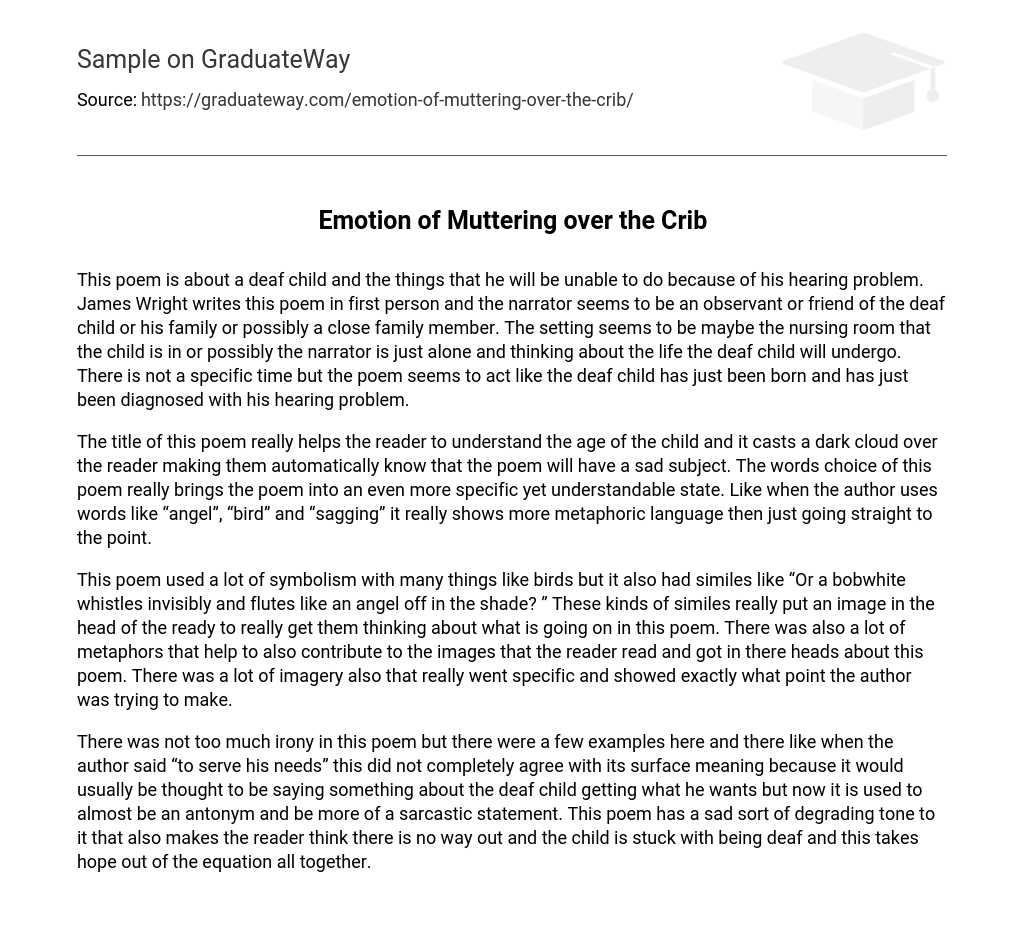James Wright’s poem explores the world of a deaf child and the limitations they will face due to their hearing impairment. The poem is written from a first-person perspective, suggesting that the speaker could be an observer, someone familiar with the child or their family, or potentially even a relative. It appears that the scene occurs in either the child’s nursery or during a solitary moment when the narrator contemplates the obstacles that await this individual with hearing difficulties. While no specific timeframe is mentioned, there is an underlying feeling that the child has recently entered into the world and received their diagnosis of auditory challenges.
The poem’s title effectively conveys the child’s age and sets a melancholic tone. Additionally, the carefully chosen words, such as “angel,” “bird,” and “sagging,” enhance the poem’s metaphorical language rather than being straightforward.
The poem utilized various symbols, such as birds, as well as similes. For instance, one simile stated, “Or a bobwhite whistles invisibly and flutes like an angel off in the shade?” These similes created vivid mental images and provoked deep contemplation within the reader. Additionally, metaphors were abundant in the poem, enhancing the imagery and further conveying the author’s intended message. Overall, the poem employed precise imagery to articulate its underlying themes.
The poem does not have an abundance of irony, but it does contain a few instances where the author uses “to serve his needs” in a way that goes against its literal meaning. While it would typically imply that the deaf child is getting what he wants, here it is used ironically to convey the opposite and make a sarcastic statement. The poem carries a sorrowful and demeaning tone, suggesting that the child is trapped in deafness with no possibility of escape, eradicating any trace of hope.





